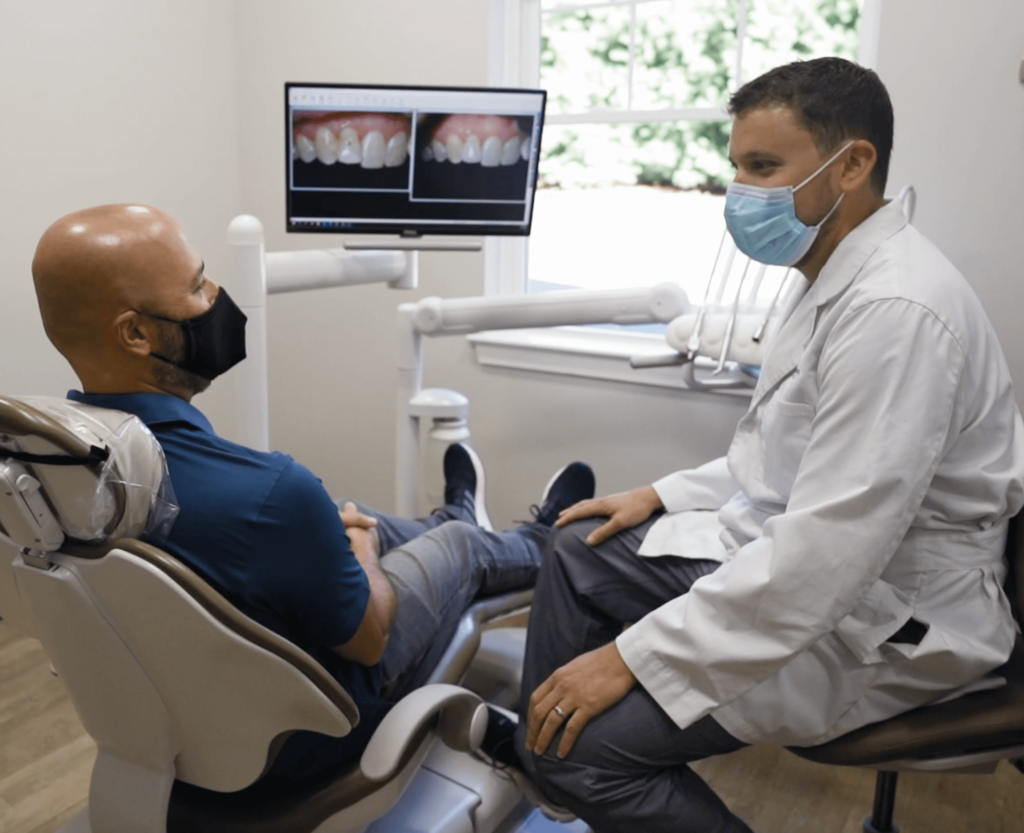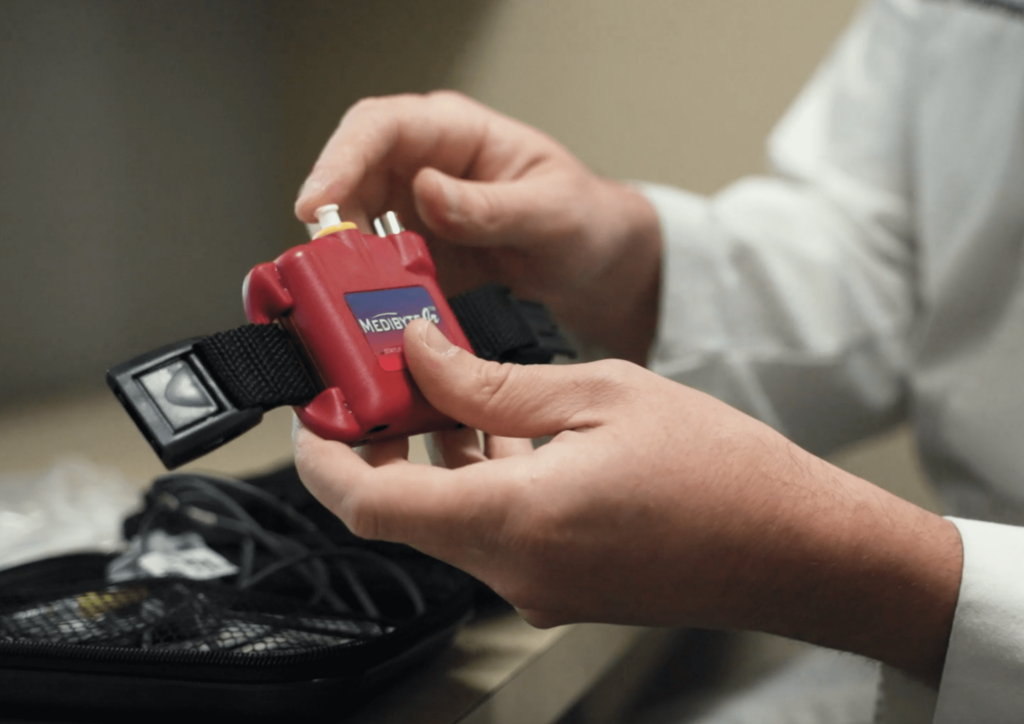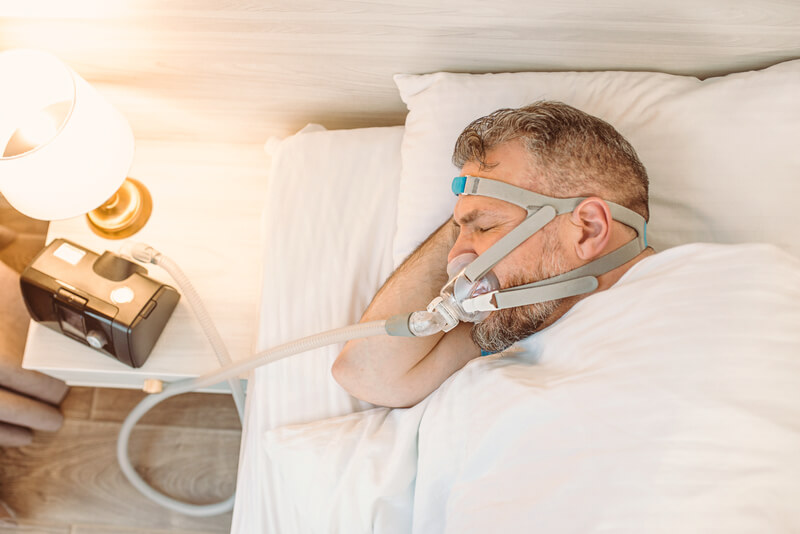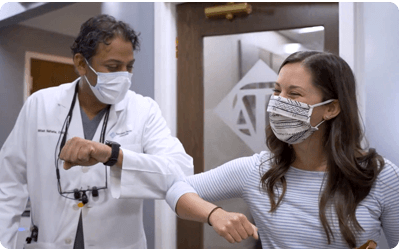Do you regularly wake up feeling tired and like you barely slept at all? 50-70 million US adults suffer from some type of sleep disorder, and Obstructive Sleep Apnea is one of the most common. Approximately 3-7% of men and 2-5% of women have sleep apnea. It is estimated that over 100 million people suffer from sleep apnea worldwide.
Obstructive Sleep Apnea causes repeated breathing interruptions as you sleep which ultimately results in a disturbance of your much-needed natural sleep patterns. Symptoms of OSA include loud snoring, waking up in the night with a feeling that you are unable to breathe, gasping for breath while you sleep, waking with a dry mouth or headaches, and increased fatigue throughout the day. Additionally, patients with OSA have an increased risk of the following serious diseases:

- Hypertension
- Cardiac Arrhythmias
- Congestive Heart Failure
- Stroke
- Mood Disorders
- Sexual Dysfunction
- Slower reaction time
- Memory loss
- GERD (Acid Reflux)
- Weight gain
OSA may be the cause of your restless nights and it can be a serious, but a very treatable health condition when caught early. If trained to screen for OSA, your dentist can often be the first person to recognize the symptoms and find a treatment plan that is right for you.
OSA occurs when back of the tongue forms a seal against the back of the throat, effectively constricting or blocking your airway while you sleep. Sensing your inability to breathe, the brain briefly rouses you from sleep so that you reopen your airway and resume normal breathing. Usually, this awakening is so brief that you don’t remember it, but repeated rousing prevents you from getting an uninterrupted night’s sleep.
At your routine dental check-ups with us we will ask about your general health and check your mouth for signs of OSA. Common signs may include tongue-ties and/or dental crowding. This makes sense, as if there’s not enough room in your mouth for your teeth, then there likely is not enough room for your tongue either! One very common sign of OSA that we see is evidence of teeth grinding, or bruxism, which is often one of the body’s responses to a lack of oxygen. Bruxism can lead to dental issues as the nightly wearing down of your teeth can make them more vulnerable to cavities and at increased risk of gum disease.

The only way to properly diagnose OSA is with a sleep study conducted by a medical doctor trained in sleep disorder medicine. In the past, the tests were very involved, and required an overnight stay at a hospital or sleep-center where you could be monitored continuously while you slept. The vast majority of OSA cases are now diagnosed with a very simple at-home test, which we can provide for you at the office. When you return the test, we send it out to be evaluated by a sleep physician. We can then review the results with you at a later date and the whole process is effortless and very straightforward.
Once you are diagnosed with OSA, our team at Tewksbury Dental Associates can help alleviate your sleep apnea. If appropriate, we can make you an oral appliance to help keep your airway open at night. These appliances are custom made to fit your teeth precisely while taking up as little space in your mouth as possible.
If you have already been diagnosed with OSA. You have probably tried a therapy called Continuous Positive Air Pressure, or CPAP. For years, CPAP was the only way to treat OSA. CPAP forces the airway open so air can pass through to the lungs. This is very effective, especially for severe cases; however, it is not always well tolerated by some people. If you cannot tolerate CPAP, Oral Appliance Therapy is a great alternative.

Oral appliances should always be designed by a qualified dentist. In many mild to moderate cases of OSA an oral appliance can be a more comfortable and effective treatment method when customized for you in our office. An oral appliance is small and portable, which makes it an excellent option for OSA patients who travel a lot. In cases where oral appliance therapy is not sufficient on its own to alleviate your symptoms, it can be a great complement to CPAP, and even make CPAP more tolerable as a much lower air pressure can be effective than without the oral appliance.
Sleep apnea can be a serious health condition that can negatively impact your overall health as well as your dental health. It is important that you get the right treatment as soon as possible. With our oral appliance therapy options, Tewksbury Dental Associates can help you prevent sleep apnea from keeping you from a good night’s sleep!






